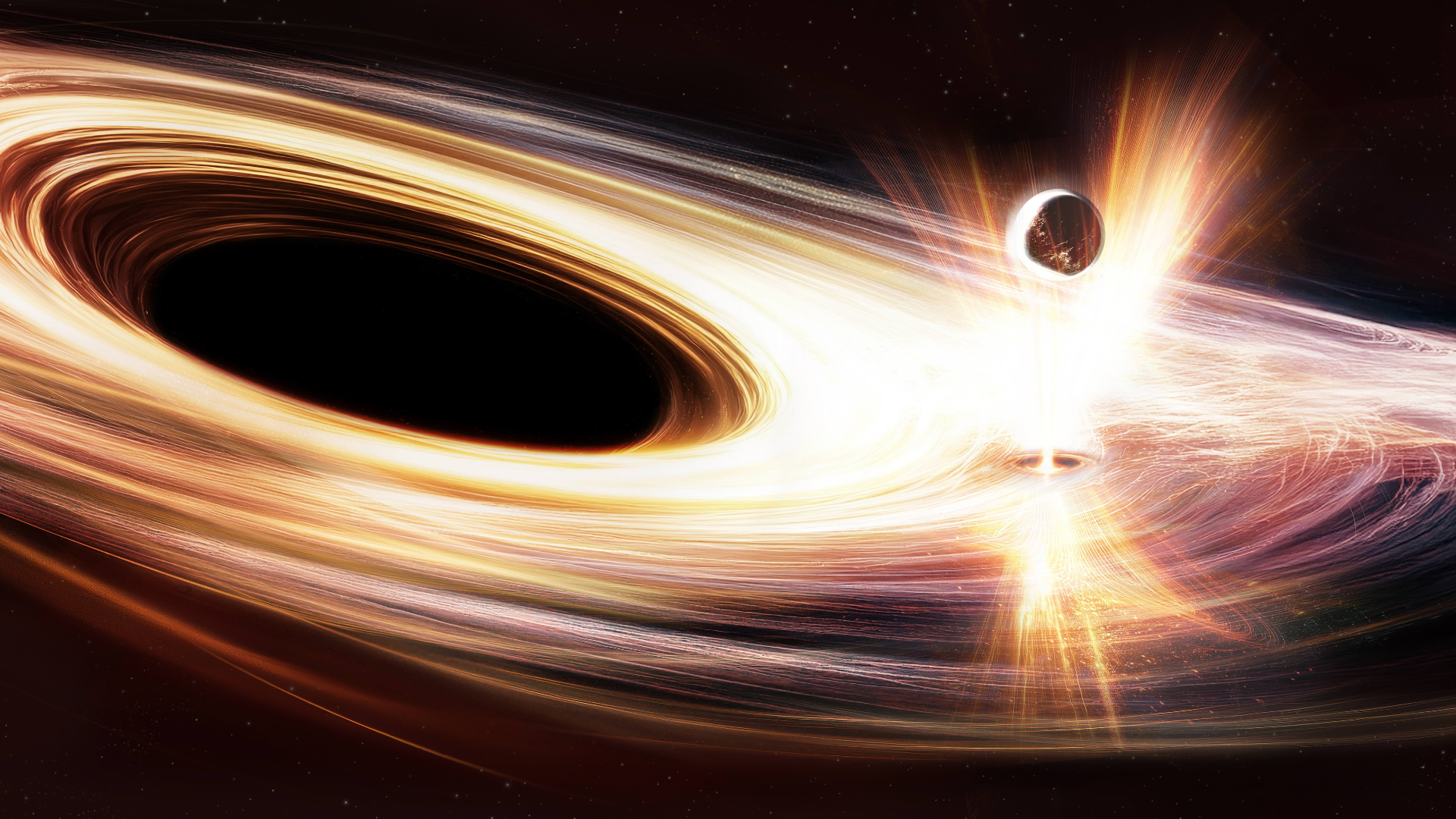The Mercury 7 Astronauts: NASA's First Space Travelers

The Mercury program represented NASA's first human spaceflight program, with the aim to see if humans could function effectively in space for a few minutes or hours at a time. NASA's first seven astronauts, the Mercury 7, were chosen in 1959.
The story of America's first astronauts is being retold in the TV series "The Right Stuff" on Disney Plus by National Geographic, which premieres Oct. 9 during World Space Week 2020.
Read on to meet NASA's first star travelers, the pioneering astronauts who became the first Americans in space.
Deke Slayton
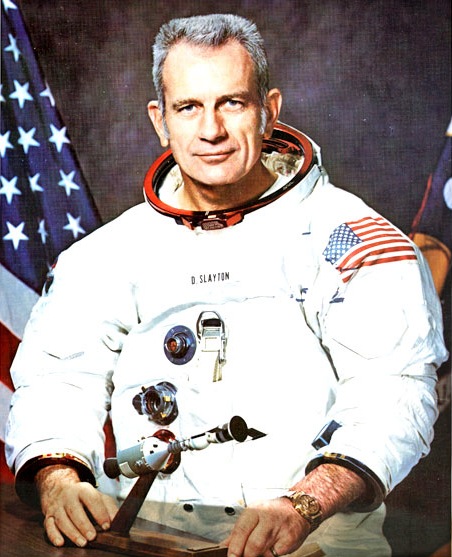
Donald "Deke" Slayton was one of the original Mercury 7 astronauts — but he never flew in that program.
Because of a heart condition, he was grounded for decades before being approved and flying in the Apollo-Soyuz Test Project, the first joint mission with the Soviet Union.
Gordon Cooper
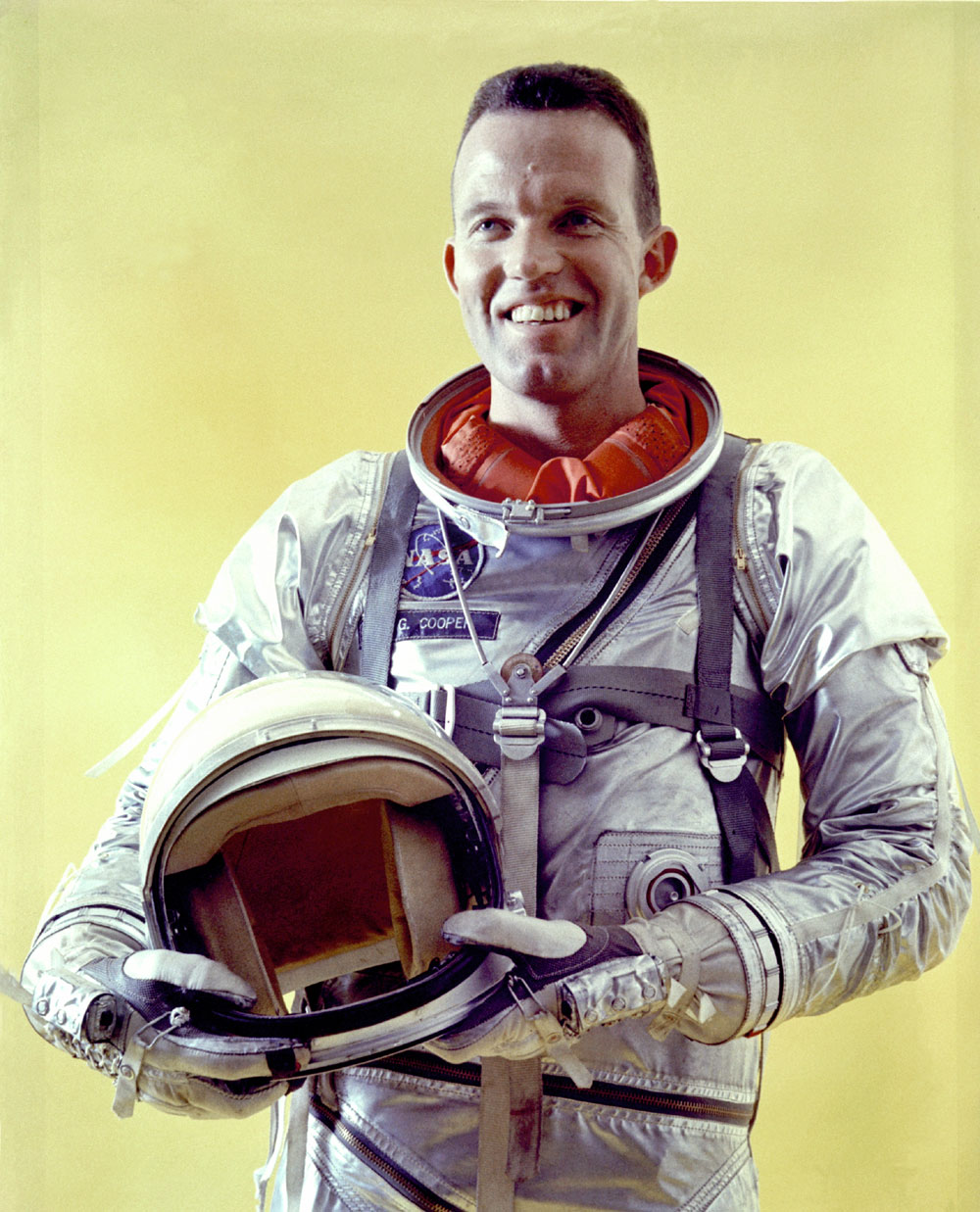
Gordon Cooper was a NASA astronaut who flew twice in space, during the Mercury and Gemini programs.
On his last flight, Gemini 5, Cooper and crewmate Pete Conrad set what was then a world endurance record of the time of 190 hours 56 minutes.
Wally Schirra
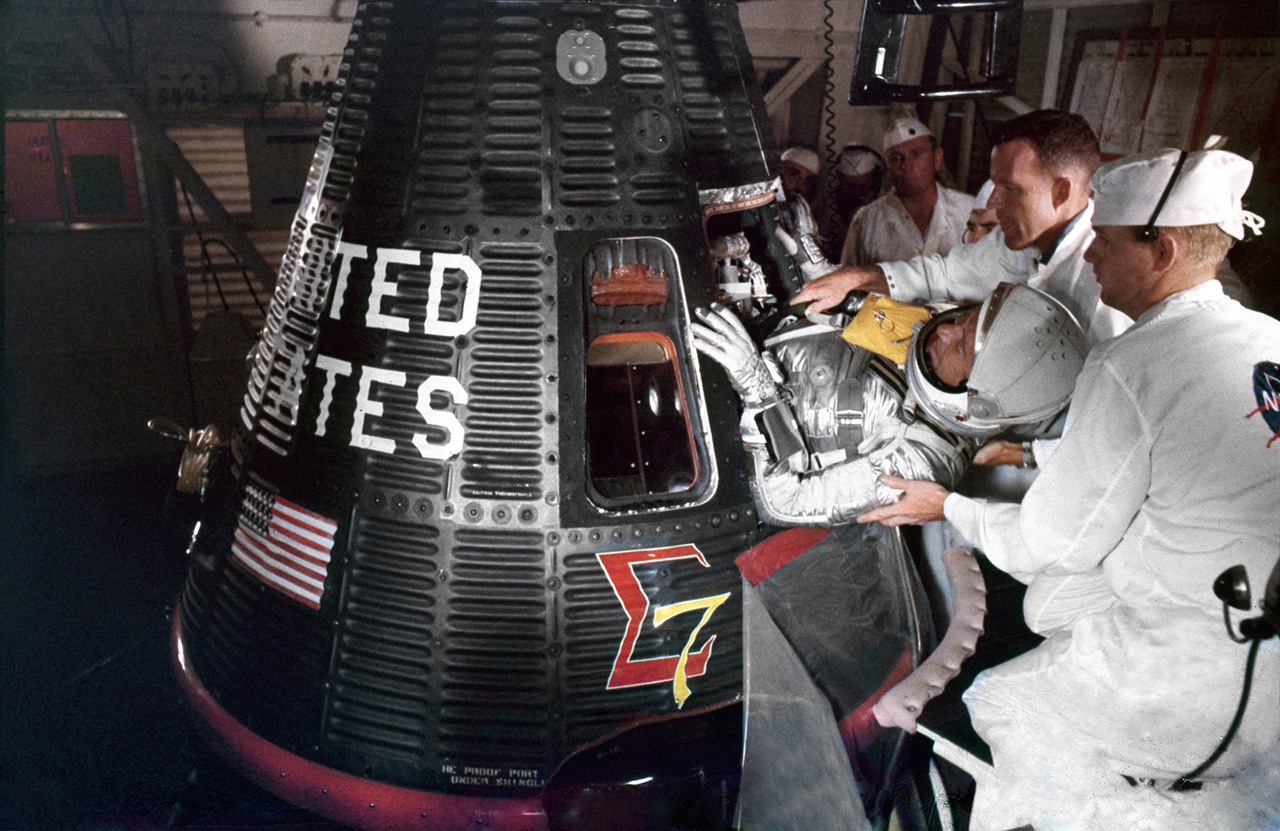
Walter "Wally" Schirra was the only astronaut who flew in the Mercury, Gemini and Apollo programs.
Named as one of NASA's "Original Seven" Mercury astronauts in 1959, he remained an astronaut long enough to fly the first manned mission of the Apollo command module that eventually ferried crews to and from the moon. He also sat through a pad abort during the Gemini program.
Scott Carpenter
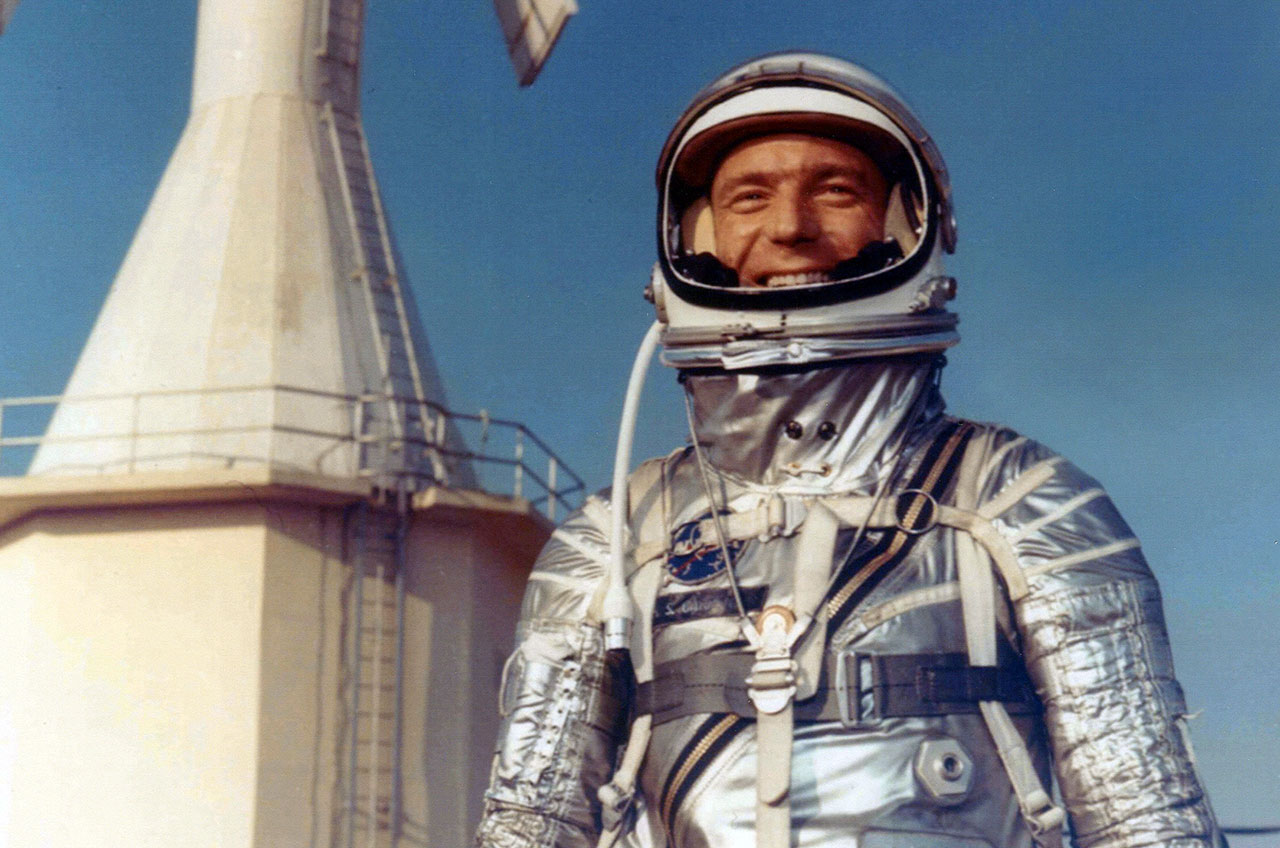
Scott Carpenter was one of the first seven astronauts selected by NASA. He flew only once in space before shifting his attention to underwater activities for much of his remaining career.
Some sources say he was not allowed to fly in space again after overshooting his re-entry target by about 250 miles (400 km).
John Glenn
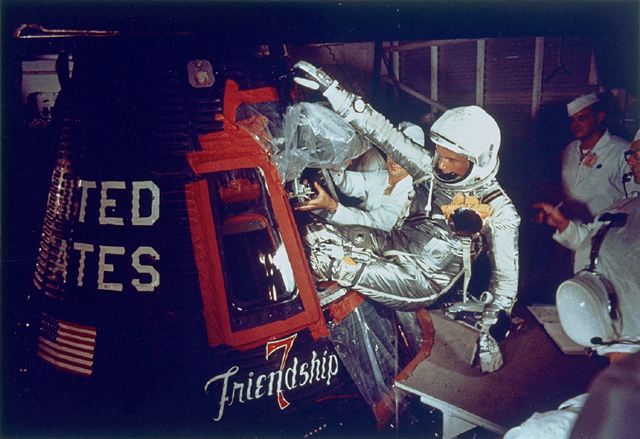
In 1959, John Glenn was selected as a Project Mercury astronaut.
On Feb. 20, 1962, Glenn blasted into space aboard Mercury's Friendship 7 capsule, then traveled around the planet three times, becoming the first American to orbit the Earth. Glenn made history again when, at the age of 77, he became the oldest person to travel in space.
Gus Grissom
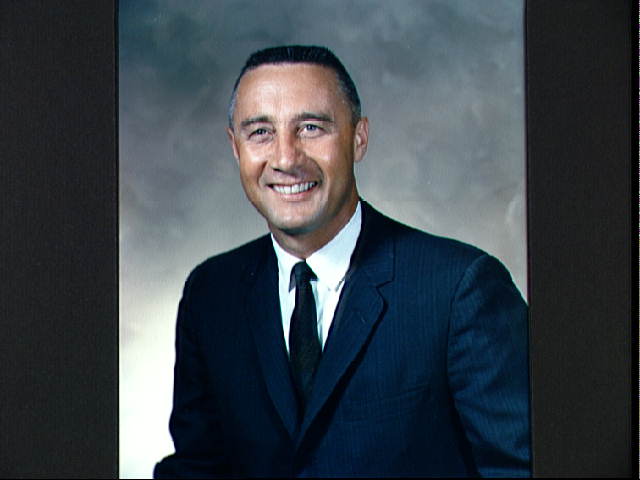
Virgil "Gus" Grissom was a NASA astronaut who flew twice in space and was selected to command the first Apollo manned mission as well.
He died, however, when a fire erupted in his spacecraft in 1967 on the launch pad, which killed his two crewmates as well. The incident prompted many changes in the Apollo program.
Alan Shepard
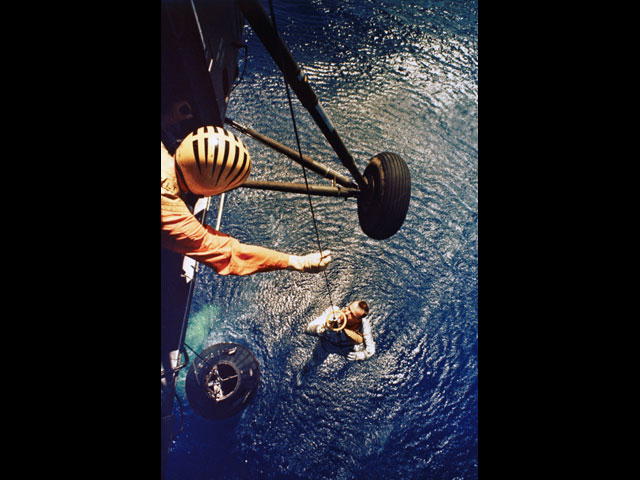
Alan Shepard became the first American in space when the Freedom 7 spacecraft blasted off from Florida on May 5, 1961.
Ten years later, Shepard would leave Earth's atmosphere again to become the fifth man to walk on the moon — and the first one to play golf there.
Join our Space Forums to keep talking space on the latest missions, night sky and more! And if you have a news tip, correction or comment, let us know at: community@space.com.
Get the Space.com Newsletter
Breaking space news, the latest updates on rocket launches, skywatching events and more!

Space.com is the premier source of space exploration, innovation and astronomy news, chronicling (and celebrating) humanity's ongoing expansion across the final frontier. Originally founded in 1999, Space.com is, and always has been, the passion of writers and editors who are space fans and also trained journalists. Our current news team consists of Editor-in-Chief Tariq Malik; Editor Hanneke Weitering, Senior Space Writer Mike Wall; Senior Writer Meghan Bartels; Senior Writer Chelsea Gohd, Senior Writer Tereza Pultarova and Staff Writer Alexander Cox, focusing on e-commerce. Senior Producer Steve Spaleta oversees our space videos, with Diana Whitcroft as our Social Media Editor.
